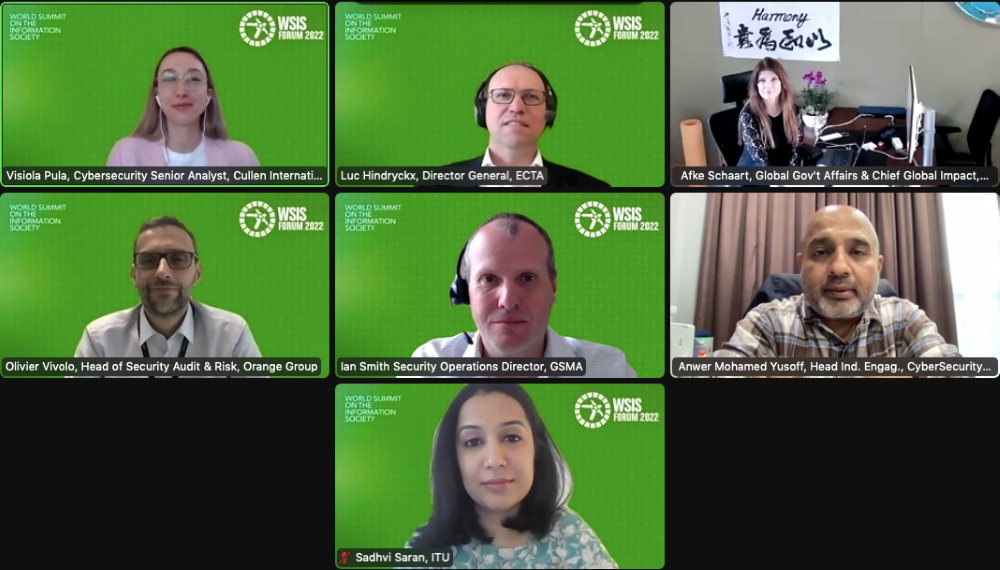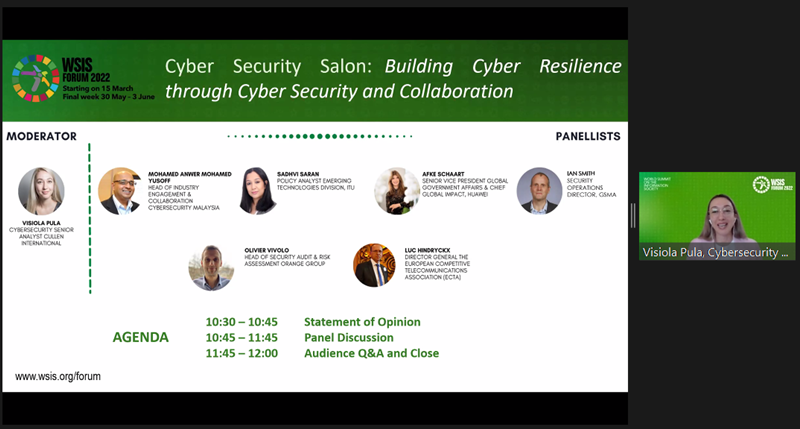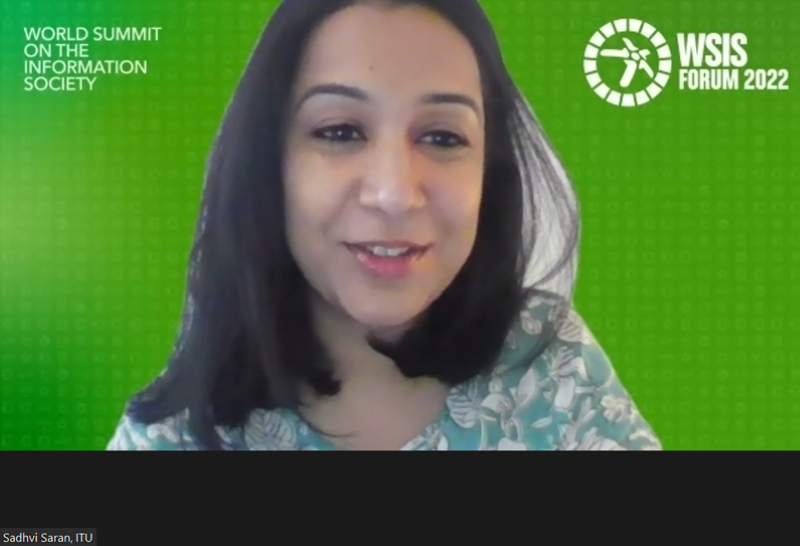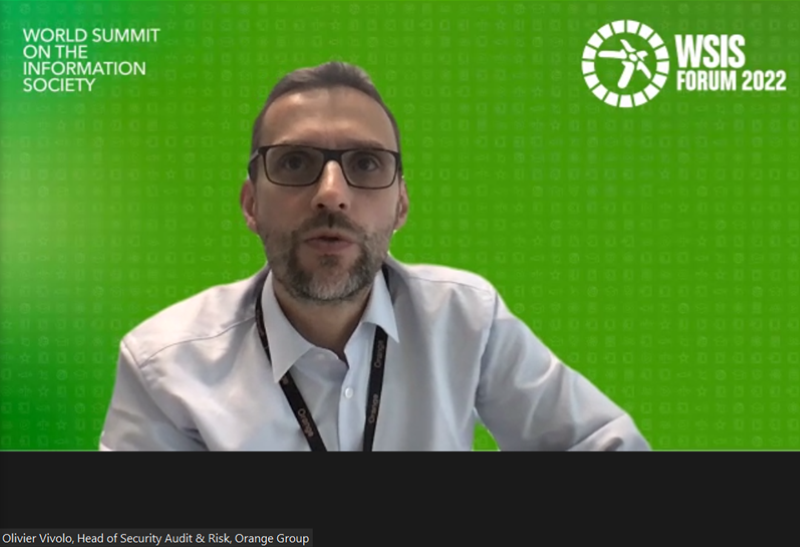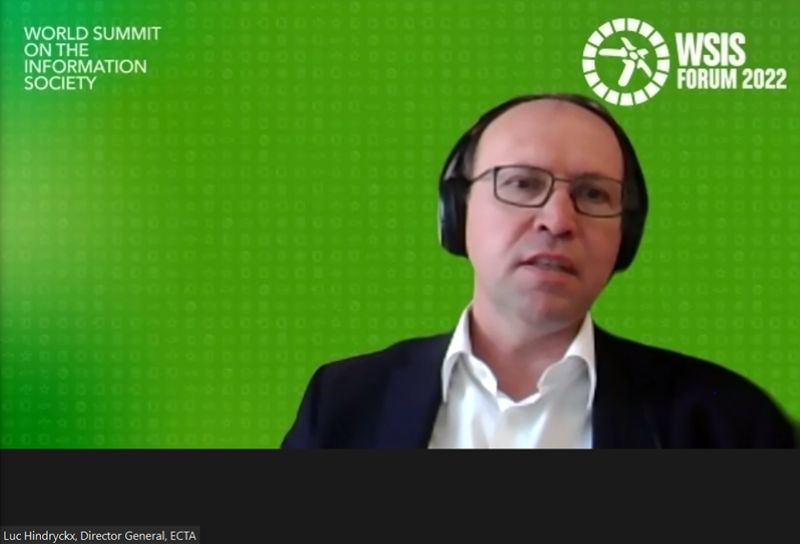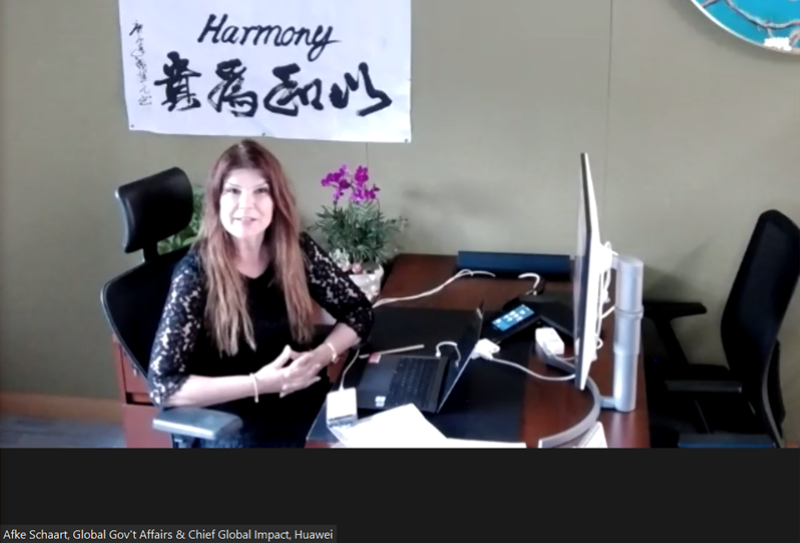Cyber Security Salon: Building Cyber Resilience through Cyber Security and Collaboration
Huawei
Session 370
As we are a world constantly transformed and challenged by both pandemic and rapid digitalization, it is crucial for all the stakeholders to build future-ready capacities from deepening collaboration, thereby getting us marched on the right way towards a better ICT future.
The Cyber Security Salon specifically aims to contribute to that goals by sharing knowledge on building cyber resilience through cyber security and global collaboration. The thematic workshop will look at how current collaboration is manifesting itself and how this can inform international approaches to cyber resilience and cybersecurity.
Key questions to be addressed will include:
- As an accelerator for industrial transformation and upgrade, and a new cornerstone for building a digital society, 5G continues to accelerate its development. In the process of large-scale application of 5G, cyber security will ensure the digital transformation of society. During the pandemic, from managing remote workforces to catering for changing customer expectations, the paradigm shift (particularly the 2C scenarios) towards digital has brought a host of security challenges. What are the main bottlenecks for stakeholders such as telecom operators, governments and its users?
- In the new digital era, cyber security resilience based on anti-attack capabilities and quick recovery capabilities will play a role in infrastructure construction, to ensure cyber security and provide more secure and reliable information services for society. What roles and responsibilities should different stakeholders play in building cyber security resilience?
- In the telecommunication field, what roles should stakeholders play to enhance knowledge and information sharing of 5G cyber security management across regions, countries, and sectors, to move to a cyber resilient and cyber secure world? What measures, baselines, and practices are we sharing in terms of governance, regulation, technology, and standards?
- How to transform the practices of different countries, carriers, and governance organizations into a knowledge base shared by the industry?
Speakers will come from regulators, industrial organizations, telecommunication operators & equipment manufacturers, and think tanks to assess the cybersecurity challenges and collaborative opportunities for stakeholders like operators and governments across the globe as they embark on and continue their ICTs transformation journeys.
Agenda
- 10:30 – 10:45 Statement of Opinion
- 10:45 – 11:45 Panel Discussion
- 11:45 – 12:00 Audience Q&A and Close
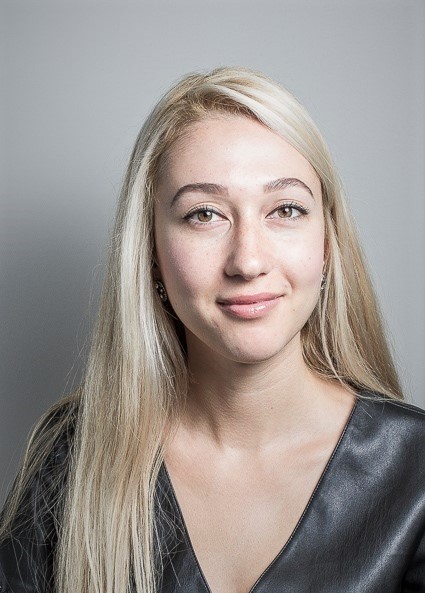
Visiola follows cybersecurity regulation at EU level and national cybersecurity developments in the UK. She leads the benchmarking analysis reports under the cybersecurity practice, and actively reports on topics such as telecoms security (including 5G), the EU Cybersecurity Act and the EU Directive on Security of Network and Information Systems 2 (NIS2 Directive).
Visiola joined Cullen International in July 2015, after graduating from the University of Hamburg, Germany in EU Law and Affairs.
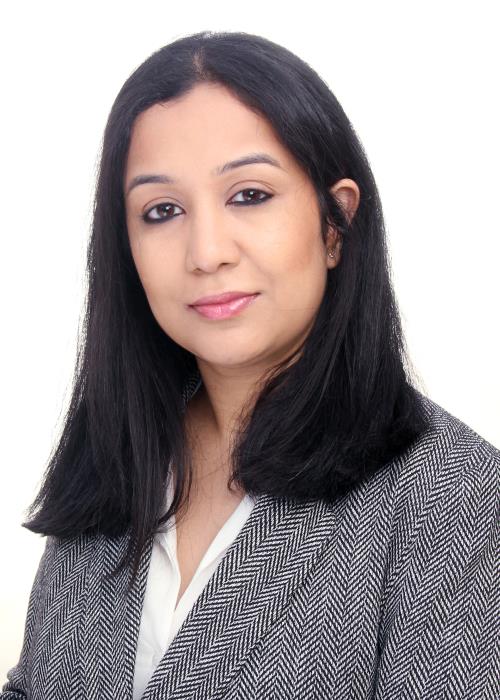
Sadhvi Saran is a Policy Analyst in the Emerging Technologies Division at ITU – the UN’s specialized agency on ICTs – focusing on international cyber-related public policy matters. She is a key member of the ITU Secretariat for the Expert Group on the International Telecommunication Regulations and is the Secretary for the Council Working Group on international Internet-related public policy issues. Prior to joining ITU, Sadhvi has worked across the public and private sector, including with the UN Global Compact in New York. Sadhvi is a qualified lawyer from National Law University Jodhpur and holds an LLM in International Law from the Fletcher School of Law and Diplomacy.
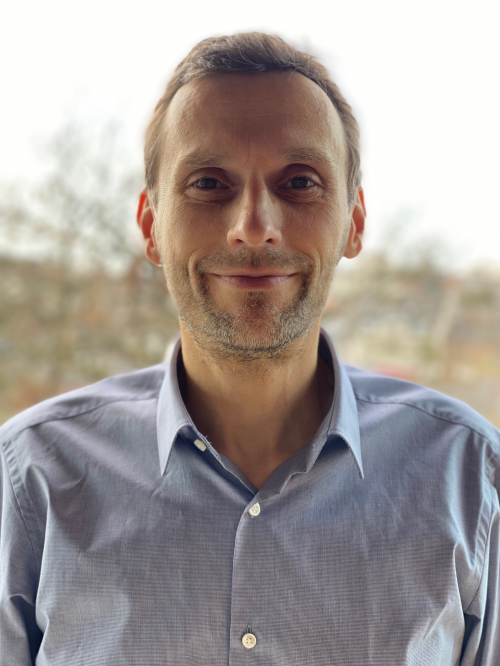
Olivier is the Head of Security Audit & Risk Assessment in Orange Group Security Department. He is currently in charge of a team of security experts in order to identify security issues within critical services.
In parallel to his current activities, Olivier continued to have research activities in cryptography, wrote some research articles, supervised a doctoral student, and is the author of several patents.
Before Olivier joined Orange, he had worked for many other companies in security hardware like Bull CP8, Axalto (Schlumberger), Neotion, etc. He developed and secured many smart cards in the field of pay TV, health, identity cards and GSM card.
Olivier is a French national and has a PhD in pure mathematics.
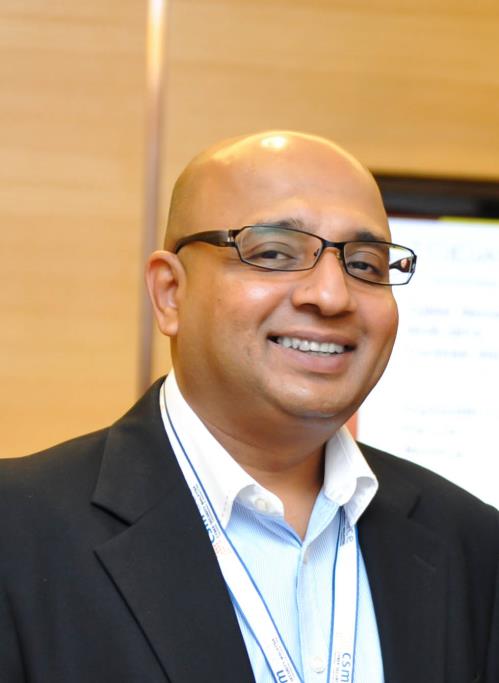
Joined CyberSecurity in 2008. Graduated with a degree in Bachelor of Science in Aeronautical Engineering from Embry-Riddle Aeronautical University, Daytona Beach, Florida and did post graduate studies at Universiti Teknologi Malaysia in the area of artificial intelligence in aircraft design. He has more than 20 years of extensive experience in the Malaysian ICT industry, and his skill-sets encompass Supply Chain Management, Business Process Re-engineering, and information security.
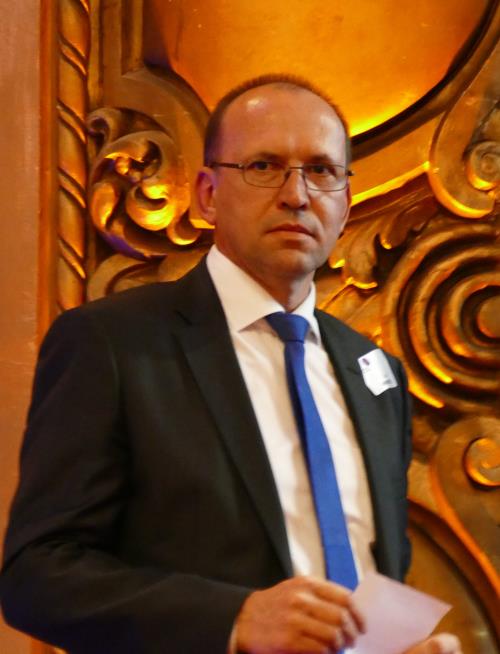
Luc has 30 years of experience in the telecom industry and has been active in business development, operations leadership as well as regulatory and public affairs.
Before joining ecta in September 2016, he worked as Monitoring Trustee on behalf of Advolis. As a rule, the task of the monitoring trustee is to control the implementation of commitments undertaken by companies under merger, antitrust or state aid proceedings on behalf of a domestic or European competition authority.
In 2009 he was appointed Executive Chairman of BIPT the Belgian Regulator and served as an elected or appointed member of multiple boards and delegations, including BEREC, ERGP, CERRE, ENISA, and UPU.
From 2008 to 2009, he set up his own company to provide executive leadership and strategic advisory services and completed assignments for Coditel/Numericable, KPN Belgium, IPM, WIN, and TECTEO/VOO.
Before he held senior positions at Telenet, the largest provider of cable broadband services in Belgium, and he has also worked for Global One and Prescom.
Luc is a Belgian national and has a Master of Business Administration (MBA) in International General Management from the Vlerick Business School, as well as a Master of Science in Industrial Engineering from Haute École Louvain en Hainaut (HELHA).
He is a native Dutch and French speaker, and speaks fluent English.
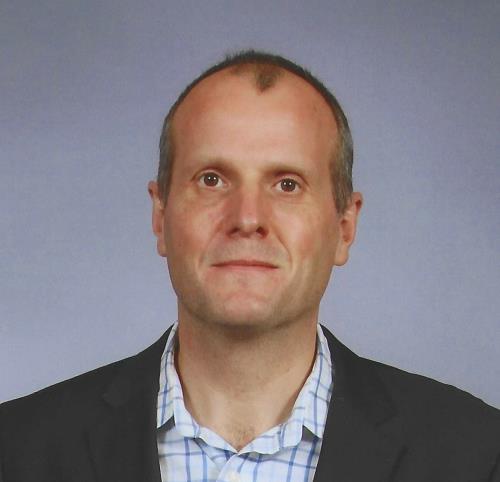
Ian is presently Security Operations Director within the GSMA’s Fraud and Security team where he leads a team of security experts who run the GSMA’s Security Accreditations Scheme (SAS), Coordinated Vulnerability Disclosure (CVD) scheme and Telecoms Information Sharing and Analysis Centre (T-ISAC). His team also issues regular security reports that provide insight on the latest security challenges and trends within the mobile industry.
Prior to this current role Ian developed many of the GSMA’s IoT security resources including IoT SAFE which leverages the SIM as a ‘root of trust’ for IoT services, the GSMA’s IoT Security Guidelines and associated IoT Security Self-Assessment scheme. Ian also led the delivery of the GSMA IoT Connection Efficiency Guidelines and the first release of the GSMA Embedded SIM Specifications.
Before joining the GSMA, Ian has held senior technical positions within network operators including Hutchison (Three) and Orange.
Ian holds a B.Eng. with joint honours in Electronic Engineering and Computer Science from Aston University, UK.

Afke is the Senior Vice President Global Government Affairs & Chief Global Impact at Huawei HQ based in Shenzhen, China. She is leading the company’s Global Impact on Society’s Initiatives. Advancing partnerships with governments, NGOs and International Organisations, and covers topics on Sustainability and Business Ethics; Women in Tech and Digital Inclusion.
Before Afke joined Huawei in 2020 she was the VP and Regional Lead for Europe, Russia and the Commonwealth of Independent States (CIS) for the GSMA. Here Afke was responsible for all Public Policy advocacy activities, Strategic Engagement, Mobile for Development and Technology Programmes (Digital Identity, Internet of Things, Future Networks (5G), Regulatory Modernisation and Spectrum).
Afke is also the former Vice-Chair of the Alliance of Europeans Telecoms and Automotive (EATA) promoting the wider deployment of Connected and Automated Driving in Europe.
Before joining the GSMA, Afke led Microsoft’s EU Institutional Relations Team in Brussels, responsible for Microsoft’s engagement with the EU Institutions, Council of Europe, and the OECD. Here she was also responsible for Microsoft Citizenship Programmes, BizSpark and YouthSpark.
Prior to this, Afke served as a Member of Parliament in the Netherlands and was the spokesperson for Economic Affairs and Innovation, Technology and ICT for the People’s Party for Freedom and Democracy (VVD).
She started her professional career at KPN where she was responsible for its policy interests and governmental affairs in Europe.
Afke studied International Relations and European Law at the University of Amsterdam and has followed the Diplomatic Training Programme at the Netherlands Institute of International Relations.
-
 C1. The role of governments and all stakeholders in the promotion of ICTs for development
C1. The role of governments and all stakeholders in the promotion of ICTs for development
-
 C3. Access to information and knowledge
C3. Access to information and knowledge
-
 C4. Capacity building
C4. Capacity building
-
 C5. Building confidence and security in use of ICTs
C5. Building confidence and security in use of ICTs
-
 C11. International and regional cooperation
C11. International and regional cooperation
-
 Goal 9: Build resilient infrastructure, promote sustainable industrialization and foster innovation
Goal 9: Build resilient infrastructure, promote sustainable industrialization and foster innovation
